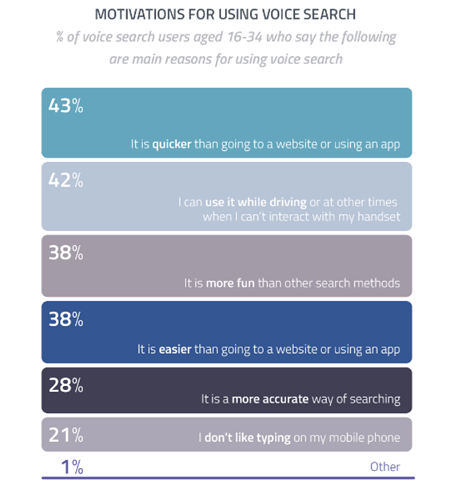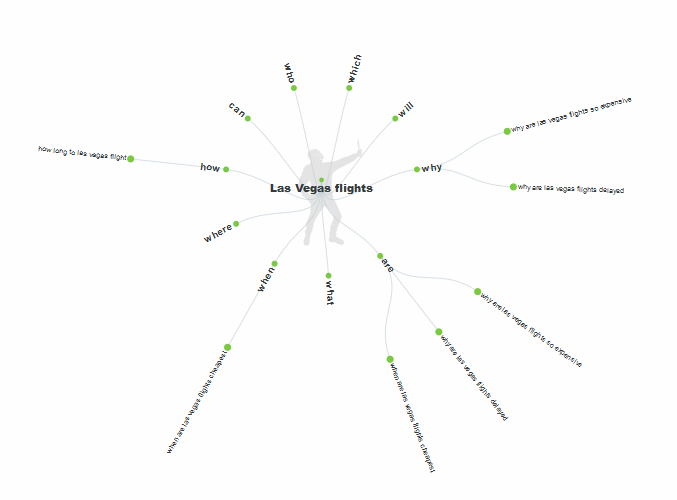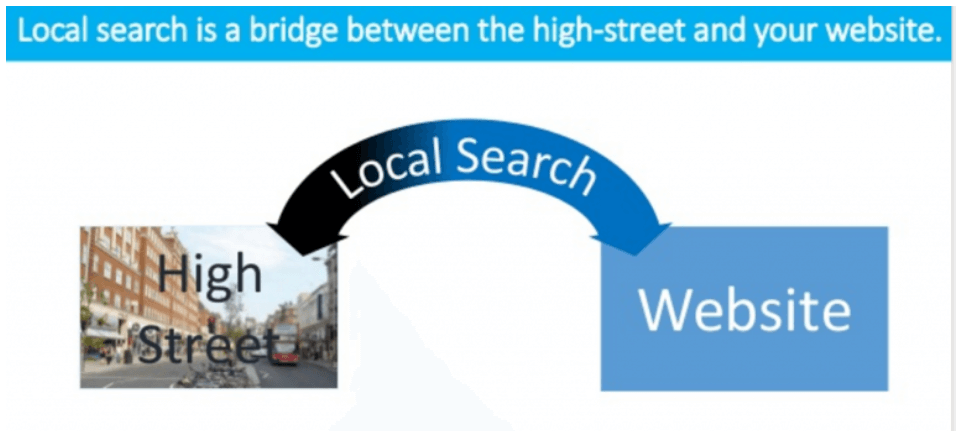
John Mueller, Trend Analyst at Google, posted a tweet, asking webmasters to share their opinions on why they wanted a separate section for voice search data in Google Search Console.

Webmasters are convinced, and chances are that Google will be too, very soon.
This is not the only indicator; you just need a quick Google search on the market buzz from the smart speakers and voice enabled gadgets industry to understand how integral 'voice' is to the future of the world we are in, where voice will be the primary mode of communication between humans and gadgets.
Voice SEO: The Battle of The Quickest
Page speed was always a key focus area for ecommerce websites; voice SEO takes it to the next level.
Voice search algorithms work to return answers and suggestions to users in fractions of seconds, just like humans interact with each other. Convenience, in fact, is the biggest motivator for anybody to ditch text search for voice search.

Here are some page speed hacks that will get your website some voice SEO love:
Regularly evaluate page speed: Use the below tools to regularly evaluate your page speed and implement the suggestions offered by them.
Convert images into JPG format: Images are crucial to converting prospects into purchasers. However, you can’t risk overloading your web pages with high res images to the extent that the page loading time is dilated, causing voice search algorithms to choose quicker loading product pages. Unless you are convinced about some other format, it’s advisable to go for JPG, a balance of clarity and compactness.
Reduce the number of HTTPS Requests: Here are some action points for your ecommerce website developers:
- Integrate multiple scripts into a single script.
- Bring together different CSS elements into a single sheet.
- Combine inline images into cached stylesheet.
- Keep the number of plugin installations to a minimum.
- Limit URL redirection because each redirect counts for an additional HTTPS request.
Voice SEO – The Digital Equivalent of Word of Mouth
Remember the last time you asked your best friend for advice on which running shoes to buy? The focus word here is ‘ASK’, because that’s essentially what people do at most stages of the pre-purchase journey.
I stumbled upon an advertisement image for Amazon’s Alexa powered smart speaker recently, and couldn’t help but notice how the focus is invariably on ‘questions’.

For an ecommerce website, it hence becomes important to be answer-ready for all the question-form voice searches their potential prospects do.
Empower Your Keyword Research Strategy With Question Keywords
Whether you use your favorite keyword research tool to filter out question-form keywords, or use Answer The Public for a visually engaging keyword research session, the key here it to build a comprehensive list of question based ecommerce relevant keywords.
Look for these elements in your keywords:
- When (is the best time to travel to Vegas/ is the sale going to end)
- Where (can I buy business class airline tickets to Vegas)
- Who (sells inexpensive, last minute deals on airline tickets)
- What (airline service offers no-halt flights from Bangkok to LA)
- Why (should I opt for business class tickets)
- How (do I pre-book my meals)
Doing a quick search on Answer The Public is easy enough; here’s how I got a neat list of question-based keywords for my airline ticket sales ecommerce website.


Optimize Your Ecommerce Blog To Address Questions: Successful ecommerce websites engage customers with top of the funnel marketing. Voice SEO is an enabler here, because consumers are likely to do a voice search at all four micro moments during their customer journeys.
By optimizing their webpages for voice SEO powered visibility during the key micro moments of customer journeys, e-retailers can significantly increase sales. To do this:
- Use your question-form keywords to brainstorm on valuable buying guide ideas.
- Build a mini-FAQ section into your high-value product pages, to improve their chances to feature in a voice search result.
- Create dedicated FAQ pages for your product categories.
- In your buying guide contents, use question keywords in subheadings, page title, meta descriptions, and title tag.
- Sometime down the line, when you decide to release a website specific chatbot, your question keywords will help as a linkage between user voice inputs and marketing content.
Local SEO and Voice SEO – The Perfect Match
Voice search is local in nature. Do a ‘where am I’ search using Google Assistant, and follow it up with a ‘Pizzas near me’ search – and you’ll know why. Local SEO, in itself, has been a major game changer for businesses.
Here’s a visual representation of what I mean:

To execute this, here’s a strategy:
- Grab your Google My Business profile for your physical business store.
- Install self-help kiosks at the store, and train store attendants to assist visitors in browsing through your e-catalogs.
Tip: To avoid surprise (or shock) among store visitors, you’d do well to brand your physical store as an experience more than a shopping destination.
Key Voice-Local SEO Tweaks
Every local SEO fine-tuning you can bring in to your website will automatically boost its potential for being showcased in a voice search relevant to your business and its location.
- Get Cited: Higher the number of NAP citations (name, address, and phone number) your business gets, higher its prospects for voice-local SEO
- Get Listed: Target the top 50 business directories to list your retail store (and link your ecommerce store website)
- Get Reviewed: Motivate store visitors as well as ecommerce shoppers to leave reviews by personalized, honest, and empathetic messaging, apart from traditional methods such as discounts and special deals.
- Localize your keywords: Use traditional keyword research tactics, just that you will need to add your city/region/neighborhood name to the main keywords.
- Local SEO tools: I recommend Whitespark, a comprehensive local SEO tool you can use to find out local citations, report incorrect citations, conduct local search audits, automate review acquisition, etc.
The overlap between these two forces – local and voice - is pretty clear, and that’s where all kinds of businesses, local as well ecommerce, have tremendous opportunities to tap into.